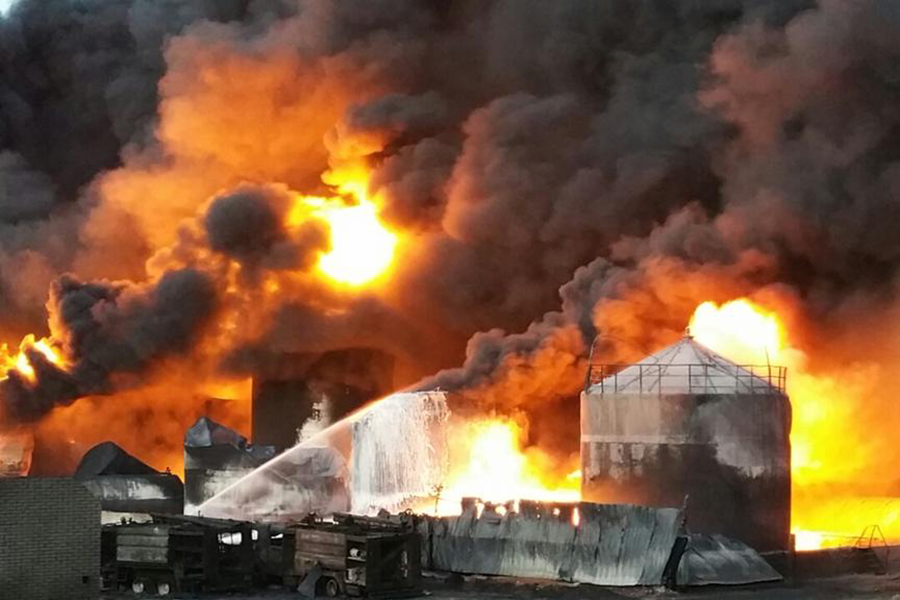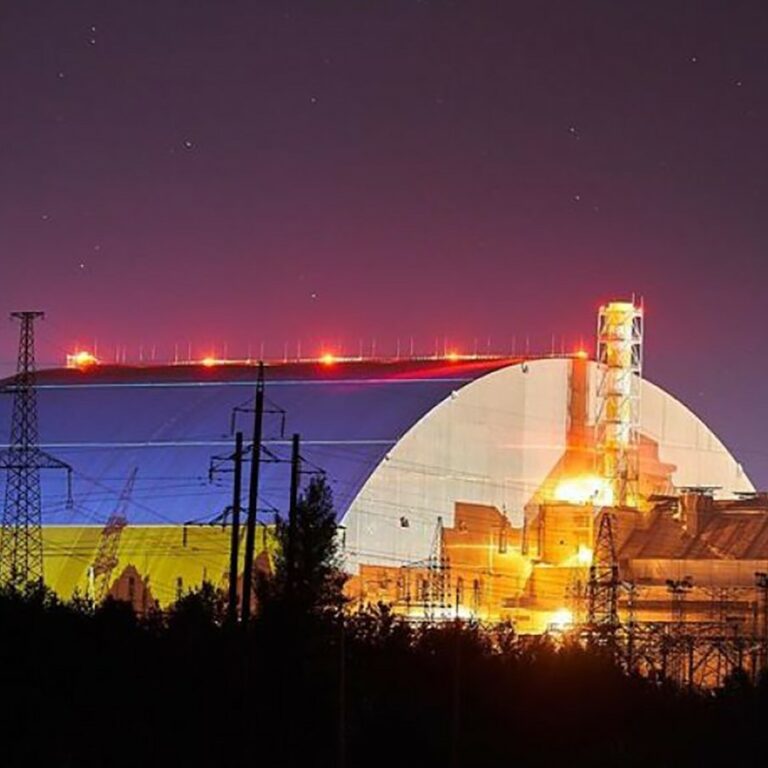Russia’s war against Ukraine is not only a crime against thousands of peaceful Ukrainians but also a threat to the world’s environmental security. For decades, the Russian government has received billions in sales of natural resources: oil, natural gas, wood, and metal ores. The Putin dictatorship has spent money on deadly weapons by systematically damaging the environment, harming Ukraine’s people and natural resources.
The deliberate ecocide of Ukraine and the world continues. It is sufficient to mention a few severe Russian Federation actions on Ukrainian territory:
Since the attack’s inception, the Russian military has been concerned with nuclear terrorism. On February 24, they occupied the Chernobyl nuclear power plant facilities, including the spent nuclear fuel storage facility and the Shelter Structure. Due to the movement of heavily armored vehicles, the radiation background around the exclusion zone has increased.

On March 6 and 10, the occupiers fired on a nuclear installation at the Institute of Physics and Technology in Kharkiv. Like nuclear power plants, this institute has the status of a nuclear agent. Nuclear fuel and radioactive elements may leak if the installation is physically damaged.

On February 25, 12 miles from the Ukrainian seaport of Pivdennyi in the city of Yuzhne near Odesa, a Russian warship fired on a Moldovan-flagged Millennial Spirit chemical tanker carrying 600 tons of fuel oil and diesel. If there is a leak, all living organisms in this part of the Black Sea could be jeopardized.

On February 26, Ukrainian air defenses shot down a Russian missile aimed at the dam of the Kyiv Reservoir, located north of Kyiv. If the dam is destroyed, there is a threat of flooding of almost three million Kyiv and large areas around the city. In addition, it could ruin other dams down the Dnipro and even lead to an accident at the Zaporizhzhia nuclear power plant.
Russian troops have repeatedly fired on oil depots. A shelling incident in the village of Kriachky, Kyiv region, on February 27 resulted in a massive fire that was extinguished in just a few days.

On February 28, Russian vacuum bombs blew up oil tanks in Okhtyrka, Sumy region.

On March 3, a Russian shell hit an oil depot in Chernihiv, igniting tanks with a total capacity of 3,000 m³ of diesel fuel. On March 7, the Russians raided oil depots in Zhytomyr and Cherniakhiv.
Due to the excessive concentration of combustion products in the air and the absorption of petroleum products into the ground, fires at oil depots are hazardous to the environment.
On March 2, Ukrlandfarming announced their Chornobaiiv (near Kherson) and Bohodukhiv (near Kharkiv) poultry farms and the Kharkiv Okhoche poultry farm, due to military action by the Russian Federation, were left without the ability to feed poultry and export chickens. It can cause an environmental disaster.
What can the international community do to stop Russia?
– Put an end to all purchases of raw materials (including oil and gas) from Russia. The terrorist state’s ability to finance war crimes must be abolished, and corporations that break the embargo must pay a fine.
– Protect Ukrainian critical infrastructure. The Ministry of Environmental Protection and Natural Resources of Ukraine has already called on the UN and NATO to provide a no-fly zone over Ukrainian nuclear power facilities.
– Appeal to international courts and arbitrations. Crimes against Ukraine have a clear international legal dimension, and Russia must be punished for them.
The Geneva Conventions for the Protection of Victims of International Armed Conflict prohibit attacks on nuclear installations and storage facilities, as well as large, long-term, and serious environmental damage caused by attacks on tankers and oil depots. According to the Rome Statute of the International Criminal Court, such actions constitute a war crime.
Russian troops are deliberately and systematically destroying non-military targets. The aggressor is destroying Ukraine’s ecosystem and threatening the whole world. This is environmental terrorism, which has no place in the 21st century.


